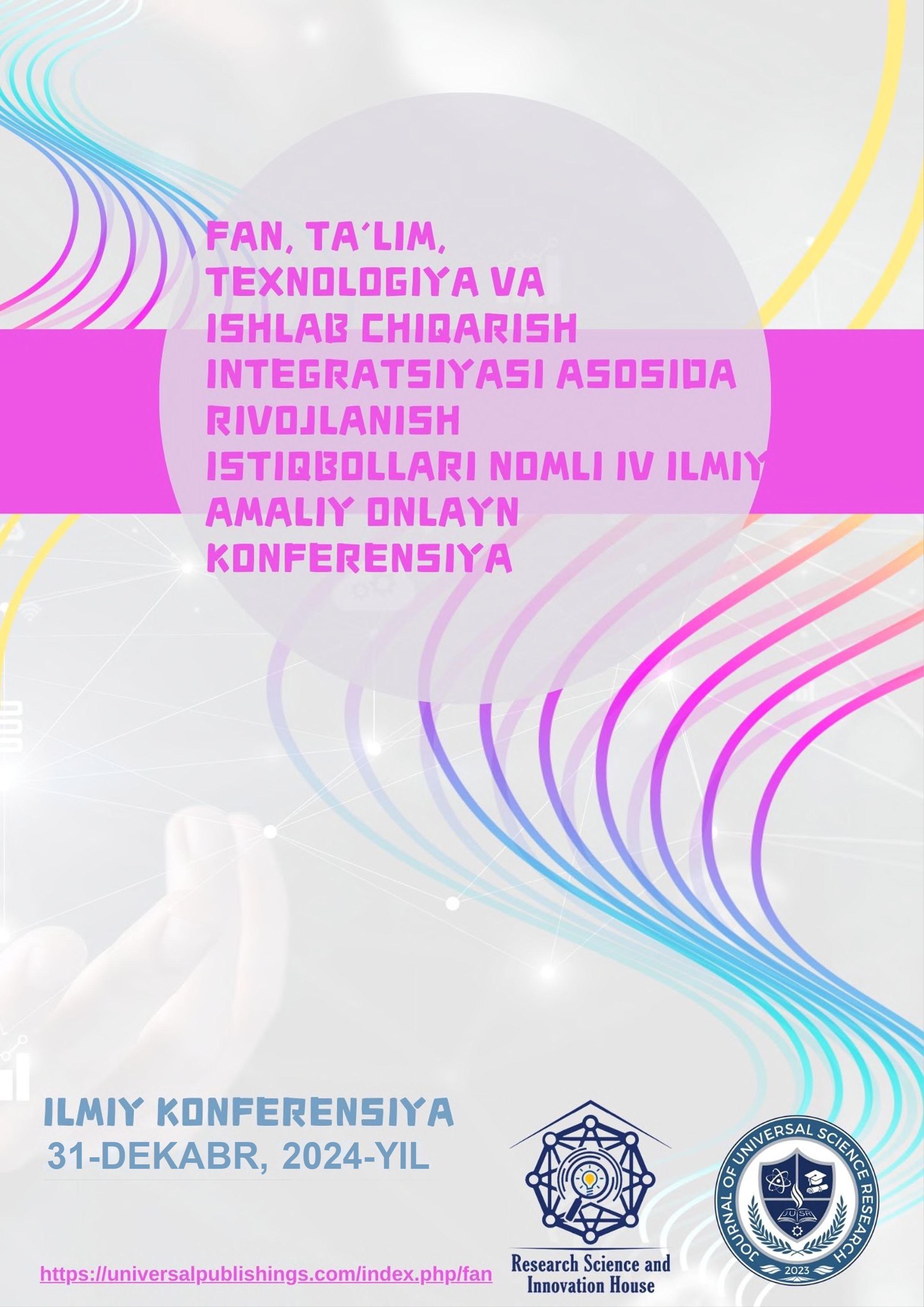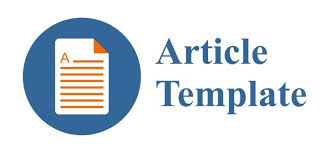COGNITIVE ASPECTS OF GRAMMAR
Keywords:
Cognitive grammar, language acquisition, mental representation, Universal Grammar, cognitive linguistics, conceptualization, psycholinguistics, sentence processingAbstract
This article explores the cognitive dimensions of grammar, emphasizing its role as a mental system for organizing and processing language. It examines how grammar interacts with cognitive processes like pattern recognition, memory, and conceptualization, shedding light on its generative and interpretive functions. Topics include language acquisition, where innate abilities and environmental input converge, and cognitive grammar, which links grammatical structures to mental representations of meaning. The article also highlights the influence of memory and cross-linguistic perspectives on grammatical systems, showcasing grammar's universality and adaptability. By approaching grammar through a cognitive lens, the piece provides a deeper understanding of its function as a bridge between thought and communication.
References
1. Chomsky, N. (1965). Aspects of the Theory of Syntax. MIT Press. 2. Croft, W., & Cruse, D. A. (2004). Cognitive Linguistics. Cambridge University Press.
3. Goldberg, A. E. (1995). Constructions: A Construction Grammar Approach to
Argument Structure. University of Chicago Press. 4. Lakoff, G., & Johnson, M. (1980). Metaphors We Live By. University of Chicago Press.
5. Langacker, R. W. (1987). Foundations of Cognitive Grammar: Volume I,
Theoretical Prerequisites. Stanford University Press.
6. Pinker, S. (1994). The Language Instinct: How the Mind Creates Language.
HarperCollins.
7. Tomasello, M. (2003). Constructing a Language: A Usage-Based Theory of
Language Acquisition. Harvard University Press. 8. Teshaboyeva, N., & Mamayoqubova, S. (2020). COMMUNICATIVE APPROACH TO LANGUAGE TEACHING. In МОЛОДОЙ ИССЛЕДОВАТЕЛЬ: ВЫЗОВЫ И ПЕРСПЕКТИВЫ (pp. 409-414). 9. Teshaboyeva, N. (2020). LINGUISTIC PERSONALITY, ITS STRUCTURAL CHARACTERISTICS IN THE NEW PERSPECTIVE DIRECTIONS. In МОЛОДОЙ ИССЛЕДОВАТЕЛЬ: ВЫЗОВЫ И ПЕРСПЕКТИВЫ (pp. 415- 420).
10. Teshaboyeva, N. Z. (2019). TEACHING ENGLISH THROUGH LITERATURE INTESL AND TEFL CLASSROOMS. In СОВРЕМЕННЫЕ ТЕХНОЛОГИИ: АКТУАЛЬНЫЕ ВОПРОСЫ, ДОСТИЖЕНИЯ И
ИННОВАЦИИ (pp. 82-84). 11. Хидирова, Д., & Тешабоева, Н. (2022). Pedagogical conditions for the development of the healthy thinking in students. Zamonaviy innovatsion
tadqiqotlarning dolzarb muammolari va rivojlanish tendensiyalari: yechimlar va istiqbollar, 1(1), 120-122. 12. Gaybullayeva, N. D. K., & Kizi, T. N. Z. (2022). THE ROLE OF INNOVATIVE METHODS FOR LISTENING COMPREHENSION IN TEACHING
LANGUAGE LEARNERS FOREIGN LANGUAGES AND MAINLY
ENGLISH. Central Asian Research Journal for Interdisciplinary Studies
(CARJIS), 2(10), 8-10.
13. Teshaboyeva Nafisa Zubaydulla qizi, Jurayev Muhammadrahim Murod o’g’li, & Mamirova Munisa Rajab qizi. (2021). Language Learning Culturally and the Role of Literature in Teaching Process. Central Asian Journal of Theoretical and Applied Science, 2(3), 1-5. Retrieved from https://www.cajotas.centralasianstudies.org/index.php/CAJOTAS/article/view/ 84
14. Teshaboyeva, N. (2023). THE IMPORTANCE OF TOURISM IN PRESENT DAY. Журнал иностранных языков и лингвистики, 5(5). 15. Teshaboyeva, N. (2023). THE MODERN INNOVATIVE TECHNOLOGIES IN TEACHING FOREIGN LANGUAGES. Журнал иностранных языков и лингвистики, 5(5). 16. Teshaboyeva, N. Z. (2023, November). Adjective word group and its types. In "
Conference on Universal Science Research 2023" (Vol. 1, No. 11, pp. 59-61). 17. Teshaboyeva, N. Z. (2023, November). Modifications of Consonants in Connected speech. In " Conference on Universal Science Research 2023" (Vol. 1, No. 11, pp. 7-9). 18. Teshaboyeva, N., & Rayimberdiyev, S. (2023, May). THE IMPORTANCE OF USING MULTIMEDIA TECHNOLOGY IN TEACHING ENGLISH
CLASSES. In Academic International Conference on Multi-Disciplinary Studies and Education (Vol. 1, No. 8, pp. 149-153). 19. Nafisa, T., & Marina, S. (2023). TEACHING AND LEARNING OF ENGLISH VOCABULARY IN TESL AND TEFL CLASSROOMS. International Journal of Contemporary Scientific and Technical Research, 465-469. 20. Teshaboyeva Nafisa Zubaydulla kizi, & Akramov Ibrohimjon. (2023). WORD FORMATION. COMPOUNDING. "XXI ASRDA INNOVATSION
TEXNOLOGIYALAR, FAN VA TAʼLIM TARAQQIYOTIDAGI DOLZARB
MUAMMOLAR" Nomli Respublika Ilmiy-Amaliy Konferensiyasi, 1(12), 109– 113. Retrieved from https://universalpublishings.com/index.php/itfttdm/article/view/3187



